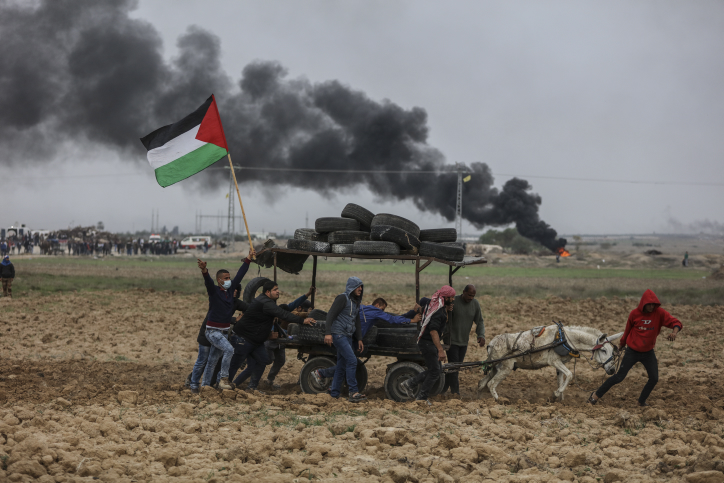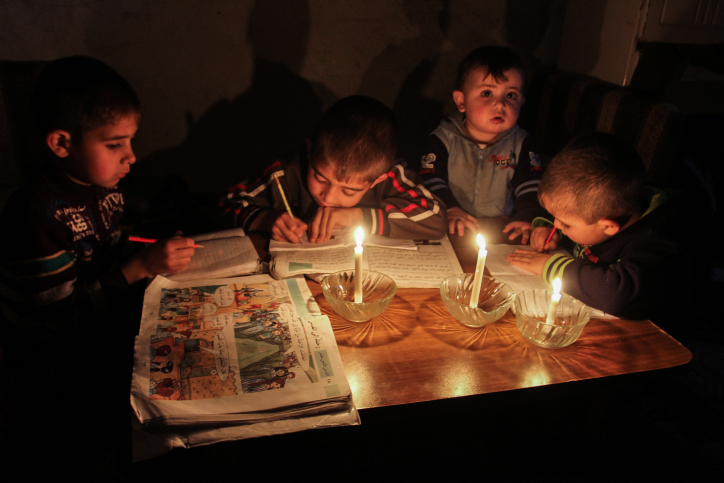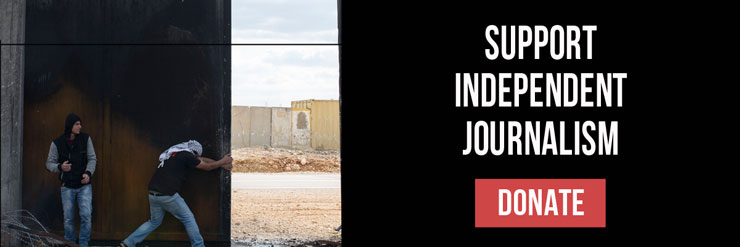A top Israeli news correspondent argues that Israel must form an international coalition to take over Gaza and overthrow Hamas. This concept leaves out decades of Israel’s conduct, which has had very little to do with security and a whole lot to do with punishing Gaza’s residents.
By Amir Rotem

In his recent column in Yedioth Ahronoth, Channel 10’s chief international correspondent Nadav Eyal suggests a solution to the challenge presented by Gaza. He calls for international mobilization to seize control of the Gaza Strip in order to overthrow Hamas (“in one way or another”), all under the laundered definition of a “humanitarian intervention.” By doing so, Eyal reinforces a highly destructive narrative, which is flawed and incomplete at best. The move he proposes not only absolves Israel of any and all responsibility for the situation in the Strip, it rewards Israel with further avowal of its own victimhood — a card to be pulled out at any time.
Under the ominous headline, “Before Gaza turns into Somalia,” the Palestinian enclave is presented, in keeping with the prevalent Israeli narrative, as some sort of untamed growth that sprang up inconveniently; a spontaneous occurrence that took us by surprise and with which we are sadly compelled to contend because no one else can.
But, wait a minute, why us? It would be far more elegant to have an international force put an end to this inconvenience, one which Eyal joins in framing as a purely military issue. This conceptualization of the situation leaves out decades of Israel’s conduct, which has had very little to do with security and a whole lot to do with punishing Gaza’s residents, policing every aspect of their lives, while reducing their needs to “humanitarian” alone.
The text needs to be unpacked. Eyal opens by ostensibly summarizing the current situation: a “drizzle” of projectiles from the Gaza Strip and the ongoing torture of Israel’s southern communities; Palestinian residents of Gaza killed in protests near the fence (a reminder that these events were sparked by Trump’s declaration on Jerusalem); and the ever-present threat of another round of hostilities.
What is missing so far? Everything that led us to where we were before the U.S. president flicked his match at our flammable region: 50 years of Israeli control, whether by way of physical presence on the ground and military administration of all aspects of civilian life, or by remote control. The contemporary form of Israel’s control over Gaza includes hermetic closure on movement of people and goods, and taking liberties to permit or deny, constrict or release the hold on every last detail involved in leading a normal life.
Israel isn’t a distinguished resident of a respectable neighborhood dealing with an ill-mannered next-door neighbor. Israel is the general contractor and the neighborhood cop. The state of Gaza’s infrastructure, economy, its residents’ health and well-being, are all results of the actions and conduct of Hamas, the Palestinian Authority, Egypt and the international community. But first and foremost, they are the result of Israel’s deliberate, explicit policy, which has always been directed at keeping Gaza residents in a state of survival. Nothing more, nothing less.
Eyal grants Israel and the Arab countries a pass on this “humanitarian intervention,” given the century-long Arab-Jewish conflict. Eyal says that Israel should support the idea because if Gaza plunges into humanitarian disaster, Israel will be held accountable. “Whether it’s right or wrong, that’s what will happen,” he writes. The obvious response is that whether it happens or not, the blame placed on Israel would not be misdirected.
Israel plays a key role in the devastating state of Gaza today, and even now, when there is so much that can be done long before any military invasion, all that Israel’s highest ranking official in charge of Palestinian civilian affairs, the Coordinator of Government Activities in the Territories (COGAT), has done is to write a letter to the UN, alerting it to the deteriorating humanitarian conditions in the Strip. Eyal references this as a way of showing that Israel also understands that there are those who would consider it the responsible party.

The text in its entirety is extremely disconcerting, not only because of the “humanitarian” war proposed by Eyal, but also because of its revision of power relations, letting Israel off the hook for its actions that severely violate the human rights of millions of people. Eyal isn’t the first herald of dark prophecies regarding Gaza’s future, while invoking the names of failed states. He has chosen Somalia and South Sudan, whose stories he knows well.
Gaza is neither of these. The majority of its population is made up of young, educated people with a thirst for life; keenly aware of everything that life in the 21st century has to offer, but suffocated by conditions that bear resemblance to the Middle Ages. What they need is a chance to live life the way they want and know how to. What they require are the conditions to do so. Presenting them as a dangerous, homogenous mass is both dehumanizing, and a great disservice to the truth.
Amir Rotem is the director of Gisha’s public department. This article was first published in Hebrew on Local Call. Read it here.


